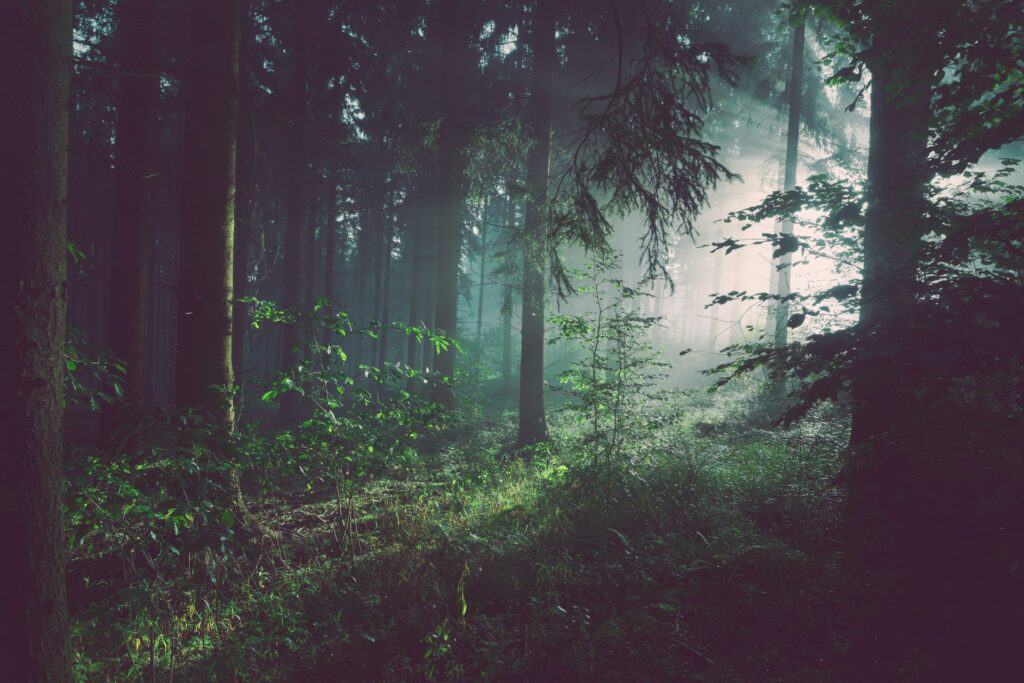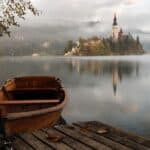
Fantasy can be broken up into dozens of subgenres. Some fantasy subgenres are popular and make up the face of mainstream fantasy (like high fantasy), while some are a little more rare and make for hidden gems (like nautical fantasy).
These subgenres may revolve around tropes, the construction of the magic system, the worldbuilding, or the atmosphere and mood of the story. Some subgenres can be broken down even further. Since they can be categorized in more than one way, I organized this list alphabetically.
So whether you’re searching for story inspiration or you’re wondering where your story fits in, here are all the fantasy subgenres I could come up with:
Arthurian fantasy
We all know the story of the sword in the stone and the legendary King Arthur. Arthurian fantasy are stories retelling or loosely based on the tales of King Arthur and his Knights of the Round Table. Think of BBC’s Merlin. Many authors have taken inspiration from these tales, but stories that fall into this subgenre tend to be retellings or borrow key characters from the tales.
Christian fantasy
Fantasy stories can come from all worldviews, creeds, and belief systems. One such belief system is Christianity. Being one of the leading religions in western society, it’s no surprise that there’s an entire subgenre based around it. These stories may include an allegorical Christ-like God figure or they may just simply come from a Biblical worldview, depending on how the reader views it.
Comedic fantasy
Combining comedy and fantasy, this subgenre has a humorous tone. It often takes the form of parody or satire. Think of The Princess Bride, a satire on the fantasy genre.
Cyberpunk fantasy (cyberfantasy)
While cyberpunk is typically thought of as an extension of the science fiction genre, it may make the occasional appearance in fantasy. Cyberpunk involves highly advanced technology and deals with the societies that result from it. Adding cyberpunk to fantasy may look like discovering magic in a technologically advanced world or fighting computer-controlled dragons.
Dark fantasy
Dark fantasy weaves gritty and disturbing themes into a fantastical story. These books may resemble or tie in elements of the horror genre. It differs from fantasy horror, though, because the point of dark fantasy isn’t to inspire fear in the readers, so much as to use the darkness of the story to drive a point home.
Epic fantasy
This subgenre tends to take place in high fantasy worlds, so it’d be easy to confuse the two. Epic fantasy involves stories of high stakes. The plotlines follow many twists and turns and are full of grand, large-scale events that involve not just a few characters but the entire world. If the MC fails, they don’t just fail to complete their goal, the world could end.
Fae fantasy
While stories involving the fae would fall under the mythic fantasy category, I thought I’d give them their own subgenre just because of the sheer volume of books that involve the fae and faerie myths. These mythical creatures have what seems like infinite spelling variations (fae vs. fey; fairy vs faerie vs fairie). Though fae exist in several cultures, many of the popularized myths come from Celtic or Gaelic folklore.
Fairytale retelling
This subgenre is exactly as it sounds. These fantasy books put their own spin on a fairytale or fable. Some retellings stick to practically rewriting the tales, while some loosely reference them. The details of the story tend to be unique to that author’s retelling.
Fantasy horror
These stories are meant to scare you. They generally deal in dark, disturbing themes, with the intent of scaring the reader and inspiring fear in them. Though magical elements may be present, these stories are, at their heart, horror.
Grimdark
The grimdark subgenre cultivates an atmosphere that is, as the name suggests, grim. These books tend to take a cynical, and often nihilistic, approach to the world. Morally gray characters are a staple and their questionable motivations often drive the story.
Heist fantasy
You guessed it. Whether it’s robbing a bank or stealing covert operations information from a post, these stories always include an epic heist as the main storyline. Typically, a ragtag group of thieves band together under a common goal to rob one of the most secure places of their world.
High fantasy
The world in this subgenre is often drastically different from our own. Think of Middle Earth or the Cosmere. The worlds contain complex magic systems, different races, made-up geographies, etc. Oftentimes, due to the expansive worldbuilding, high fantasy leads to plotlines of epic proportions.
Historical fantasy
With historical fantasy, stories take place in a previous time period. Sometimes the place and time period merely provide an interesting setting. Sometimes it goes beyond that, to the point where the culture and social customs influence the plot and character arcs. Either way, the writer weaves magic into history.
Low fantasy
Low fantasy is set in either the real world or one resembling it. These worlds would have modern-day technology and feature problems much like ones we would encounter on a daily basis. Despite the realistic setting, magic pervades the world, the characters, and the conflict.
Magic school
Because of Harry Potter’s legacy, other magic school stories may be overshadowed, but the subgenre is there. The primary setting of this subgenre—and often where the conflict begins—is a school or university dedicated to training students in magic or another fantastical ability.
Magical realism
Magical realism takes the real world and adds a drop of supernatural to it. The magic system is woven into the world and comes with hard rules. These rules cannot be broken and often turn magic into something more “realistic,” like a technology, an energy, or a natural quality. The point of the story isn’t the fantastical elements so much as what they draw out of the realistic ones.
Medieval fantasy
Perhaps the face of fantasy, medieval fantasy refers to when the story takes place during a pseudo-medieval era, leaning on western European culture and myths to build their fantasy world. These books tend to include a feudal system of some sort, the standard wizards, dragons, a monarchy, taverns, and pseudo-medieval garb. Many books put their own spin on the time period and are rarely historically accurate.
Military fantasy
These stories revolve around the gritty reality of war. They may center on the building up to the war, fighting the battles, or dealing with the aftermath. Military fantasy books might feature fantastical weaponry, armor, battle tactics, politics, and action-packed fight scenes.
Monster hunter fantasy
This subgenre involves one fantasy race (typically humans) warring against another one (anything non-human). The story revolves around humans hunting, trapping, and slaying non-human beasts in some capacity. The hunters are made out to be the good guys, and the monsters, usually, the bad guys.
Mythic fantasy
Mythic fantasy revolves around mythologies and pantheons that come from real-life cultures. This mythology can be Greek, Roman, Mayan, Aztec, Chinese, Russian, Japanese, Egyptian, Celtic, Gaelic, etc. Mythic fantasy stories bring these legends to life.
Nautical fantasy
These sea-faring fantasy stories primarily take place on (or in) the sea. Pirates, mermaids, underwater colonies, islands, ports, and ships abound. (A sub-subgenre here would be swashbuckling fantasy, which I’ve seen used to describe fantasy fiction with pirates.)
Paranormal fantasy
While there may be a unique magic system in place, paranormal fantasy revolves around standard paranormal creatures such as ghosts, vampires, werewolves, demons, and witches. These stories may feature conflicts revolving around curses, hexes, covens, the spiritual realm, and anything else paranormal.
Portal fantasy
Portal fantasy is when portals connect different places that make up the world. These portals may lead to other planets, realms, parallels, alternate dimensions, or simply just another physical place on the same earth. The portals may be common transportation or an oddity, depending on their role in the story.
Progression fantasy
You know how in video games the player can “level up” and unlock new armor, weapons, and skills? That concept is also found in progression fantasy. As a character-forward subgenre, progression fantasy focuses on the MC getting stronger. This may entail the MC working to level up and pursue the occasional side quest.
Quest fantasy
As the name suggests, the storyline involves the main character (and usually a band of friends) setting out on a grand adventure to accomplish a goal. This means leaving the comfort of home and traveling far. Whatever the goal is, it tends to be high-risk and epic in proportions (though it doesn’t have to be).
Romantic fantasy (romantasy, fantasy romance)
At the heart of romantic fantasy, an amorous relationship drives the storyline. Often set in a fantasy world, romance is the focus of the story. Though other plotlines may be running alongside the developing relationship, the main storyline starts and ends with different stages of the relationship.
Steampunk fantasy
Like cyberpunk, steampunk hails from the science fiction genre. It involves a world full of people, technology, and inventions that are chimeras of historic and futuristic machinery and magic.
Superhero fantasy
Superheroes tend to be considered a genre all on their own, but when we’re looking at supernatural powers, potentially combined with an alternate universe, these stories become fantasy. This subgenre consists of at least one character taking it upon his- or herself to use their unique abilities for the greater good, often by fighting crime. These stories typically revolve around the hero’s personal development, relying on them to stop a single villain or group of villains.
Urban fantasy
Urban fantasy explores magic in a modern cityscape. The magic tends to be more supernatural than majestic, but that doesn’t have to be the case. In these stories, the supernatural elements may be public knowledge or hidden secrets.
Wild West fantasy
This is a rare one, but it’s out there. It combines all the typical gunslinger cowboy tropes with the supernatural, set in an alternate western-American landscape from the 1800s. It may also be referred to as Weird West.

